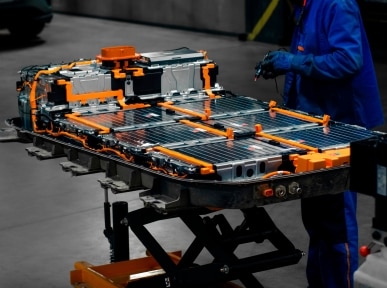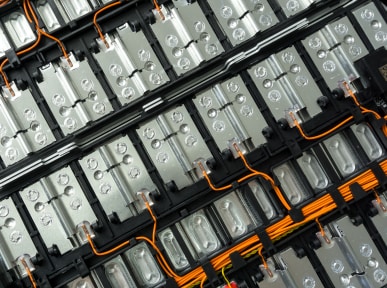Looking for the most efficient components for battery management in your EV/HEV design?
Looking for the most efficient components for battery management in your EV/HEV design?
With an easy-to-use interactive block diagram, our BMS application page lists key components for efficient solutions addressing critical features such as voltage, temperature and current monitoring, state of charge, state of health, and lithium-ion battery cell balancing.
ST's expert engineers have put together key development resources to help you identify the main pitfalls and provide pragmatic solutions, evaluation boards and kits.
Reduce your design cycle with these development resources

BMS, a key to e-mobility applications
BMS, a key to e-mobility applications
Whitepaper by John Johnson
This whitepaper addresses the challenges of designing efficient battery management systems and reducing consumer range anxiety. It provides technical analysis and solutions for enhancing drivetrain efficiency, power distribution, vehicle charging, and battery pack performance. It also highlights ST's support for automotive designers with cost-effective battery management solutions and tools, featuring the L9963E Li-ion monitoring chip and the L9963T SPI transceiver.

AutoDevKit fast prototyping concept and toolset made for xEV BMS developers
AutoDevKit fast prototyping concept and toolset made for xEV BMS developers
A pragmatic design approach and flexible kit which helps measure current, voltage and temperature in critical points of the battery pack and shares this data with other vehicle systems for accurate state of charge (SoC) and state of health (SoH) estimates.
You can build 3 different BMS topologies (LV single node, centralized access, and dual access ring), combining and adding the boards you need to set up your BMS system.

BMS solutions: 36V and beyond from BMS ICs to the MCU
BMS solutions: 36V and beyond from BMS ICs to the MCU
ST offers a highly scalable solution able to daisy chain up to 31 L9963E BMS ICs, each one able to manage up to 14 battery cells. Our SPC58 automotive MCUs for traditional applications or Stellar integration MCUs for software-defined vehicles are key to building more affordable electric vehicles with a longer driving range as well as advanced digitalization systems to ensure new levels of performance and safety.

Remove or reduce risks related to xEV crash events with fast, reliable HV battery disconnect systems
Remove or reduce risks related to xEV crash events with fast, reliable HV battery disconnect systems
Two battery disconnect and fire-off solution ICs for a fully integrated or distributed system to remove or reduce the risks related to crash events involving electric vehicles. Our pyrotechnical safety switch systems trigger controlled micro-explosions, cutting the wiring between the HV battery unit and the rest of the vehicle, thus reducing or eliminating the flow of current and risk of electric shock or fire. Full development ecosystem available.
BMS in eMobility | Webinar
Discover how ST helps engineers solve some of the most difficult Lithium-Ion battery management challenges